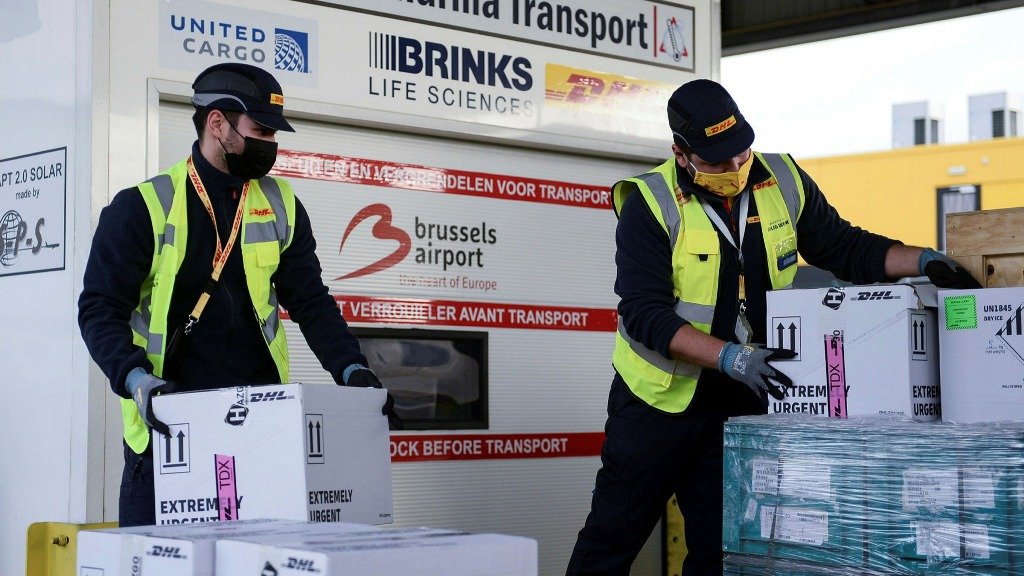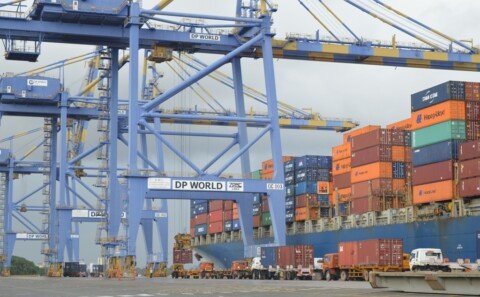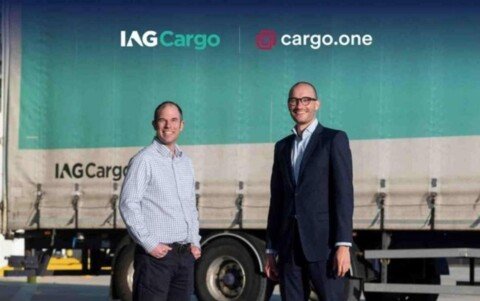More than one billion vaccines – 750 million exports, 250 million imports and millions more in transfers – have passed through Brussels Airport in the last 14 months, to Europe and beyond. And every day, vaccine flights take off to more than 60 countries around the world, with Japan and the United States being the two main destinations. Many airlines are involved in these transports: United Airlines, DHL Express, All Nippon Airways, Japan Airlines, Sichuan Airlines, Hainan Airlines, TUI fly, Singapore Airlines, TAP, Iberia, Lufthansa Cargo, Emirates, Virgin Atlantic and Qatar Airways. Logistics partners, including Expeditors, DHL Global Forwarding and Kuehne+Nagel, are also important to ensure these shipments run smoothly and safely.
Many airlines and all-cargo carriers are involved in these transports: United Airlines, DHL Express, All Nippon Airways, Japan Airlines, Sichuan Airlines, Hainan Airlines, TUI fly, Singapore Airlines, TAP, Iberia, Lufthansa Cargo, Emirates, Virgin Atlantic and Qatar Airways. Logistics partners, including Expeditors, DHL Global Forwarding and Kuehne+Nagel, are also important to ensure these shipments run smoothly and safely.
In addition to COVID vaccines, Brussels Airport has recently started shipping COVID pills. In terms of transport, while the process is quite similar to that of vaccines, the pills are even more sensitive to temperature variations. With its state-of-the-art pharmaceutical infrastructure, Brussels Airport is the ideal partner to ensure these new transports are carried out safely.
“We are proud to pass the milestone of one billion vaccines transported via Brussels Airport. We have been contributing to the fight against COVID and supporting vaccination programmes around the world since the first vaccine flight operated in November 2020,” explains Arnaud Feist, CEO of Brussels Airport.
“Our infrastructure and equipment for handling vaccines and other pharmaceuticals meet the highest standards of the pharmaceutical sector. Quality and safety are our priorities and every day we work together with our partners to ensure the numerous shipments of vaccines and pills to more than 60 countries.”
It is not by chance that the pharmaceutical industry chose Brussels Airport at the time and continues to place its trust in the airport’s cargo operators. Indeed, for more than ten years, Brussels Airport has made the transport of pharmaceutical products one of its specialities. Not only does the airport have more than 35,000 sq mt of temperature-controlled warehouses in its cargo area, enabling it to meet the needs and specifics of pharmaceutical products that are highly sensitive to temperature variations, but it is also the driving force behind the development of Airside Pharma Transporters these mobile ‘refrigerators’ that circulate on the tarmac ensure that the transport between the warehouses and the aircraft.
Brussels Airport also owes this expertise to its cargo partners in the BRUCure Taskforce, many of whom are certified in the pharmaceutical sector under the IATA CEIV programme, and to the collaboration with Air Cargo Belgium. Today, almost 10% of the total volume of goods handled at Brussels Airport consists of pharmaceuticals. Around 500 Brussels Airport employees work on a daily basis to ensure these transports and thus offer a secure and optimised chain for these very specific shipments.







